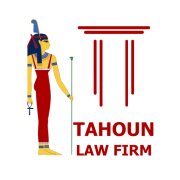Best Hiring & Firing Lawyers in Egypt
Share your needs with us, get contacted by law firms.
Free. Takes 2 min.
Or refine your search by selecting a city:
List of the best lawyers in Egypt
About Hiring & Firing Law in Egypt
The employment laws in Egypt are primarily governed by the Labor Law No. 12 of 2003, which regulates the rights and obligations of employers and employees. These laws encompass various aspects of employment, including contracts, working hours, wages, and terminations. The laws aim to protect both parties, offering fair grounds for hiring and firing to ensure stability and justice in the workplace. Understanding these laws is crucial for business owners and employees alike to minimize disputes and ensure compliance.
Why You May Need a Lawyer
Hiring and firing decisions are critical and can have significant legal implications. Some common situations where legal assistance may be required include:
- Drafting or reviewing employment contracts to ensure they meet legal standards.
- Handling disputes related to wrongful termination, discrimination, or harassment claims.
- Understanding the legal procedures for terminating an employee to avoid potential lawsuits.
- Advising on compliance with local labor laws to avoid penalties or legal issues.
Legal guidance can help navigate these complex issues and provide assurance that all activities are conducted within the framework of the law.
Local Laws Overview
Several key aspects of Egyptian labor law are particularly relevant to hiring and firing:
- Employment Contracts: Must be in writing and include essential terms such as job description, salary, and duration. Contracts may be indefinite or fixed-term.
- Probationary Period: Typically, the probationary period should not exceed three months, during which an employer can evaluate the employee's performance.
- Termination of Employment: Employers must have a justified reason for termination, and employees must be provided with due notice except in cases of gross misconduct.
- Severance Pay: Employees are generally entitled to severance pay depending on their length of service upon termination.
- Dispute Resolution: Labor disputes are usually resolved through labor courts or arbitration to reach a fair conclusion.
Frequently Asked Questions
What is the maximum probation period allowed?
The maximum probation period allowed under Egyptian law is three months.
Can an employer terminate an employee without notice?
Employers must provide due notice unless termination is due to gross misconduct, which allows immediate dismissal.
What constitutes a fair reason for termination?
Acceptable reasons include poor performance, redundancy, or misconduct. These must be well-documented.
Is severance pay mandatory in Egypt?
Yes, severance pay is typically mandated based on the employee's duration of service, particularly if the employee has been with the company for over ten years.
Are verbal employment contracts valid?
No, employment contracts must be in writing to be legally valid.
How are disputes regarding wrongful termination handled?
Disputes are generally resolved through labor courts or mediated arbitration.
What protections exist against discriminatory firing?
The Labor Law has provisions that prohibit termination based on discrimination, requiring just cause for all dismissals.
How can employers ensure compliance with labor laws?
Employers should seek legal advice to regularly review their employment practices and policies.
What happens if an employer violates labor laws?
Violations can result in fines, legal penalties, and the obligation to compensate affected employees.
Can an employee resign without notice?
Employees are generally required to provide notice, which is often stipulated in the employment contract.
Additional Resources
Consider reaching out to the following resources for further assistance:
- Egyptian Ministry of Manpower: Offers guidance and resources for both employees and employers.
- Egyptian Trade Union Federation: Provides support and information on workers’ rights.
- Local Legal Practitioners: Specializing in labor law, they can provide personalized advice and representation.
Next Steps
If you require legal assistance with hiring or firing, consider the following steps:
- Consult with a legal professional specializing in labor law to evaluate your specific situation.
- Gather all relevant employment documentation, including contracts, communications, and performance records.
- Prepare a detailed account of the issues or concerns at hand, including any disputes or grievances.
- Discuss the potential outcomes and legal strategies with your lawyer to determine the best course of action.
Taking these steps can help ensure that your rights and responsibilities are clearly understood and protected within the legal framework in Egypt.
Lawzana helps you find the best lawyers and law firms in Egypt through a curated and pre-screened list of qualified legal professionals. Our platform offers rankings and detailed profiles of attorneys and law firms, allowing you to compare based on practice areas, including Hiring & Firing, experience, and client feedback.
Each profile includes a description of the firm's areas of practice, client reviews, team members and partners, year of establishment, spoken languages, office locations, contact information, social media presence, and any published articles or resources. Most firms on our platform speak English and are experienced in both local and international legal matters.
Get a quote from top-rated law firms in Egypt — quickly, securely, and without unnecessary hassle.
Disclaimer:
The information provided on this page is for general informational purposes only and does not constitute legal advice. While we strive to ensure the accuracy and relevance of the content, legal information may change over time, and interpretations of the law can vary. You should always consult with a qualified legal professional for advice specific to your situation.
We disclaim all liability for actions taken or not taken based on the content of this page. If you believe any information is incorrect or outdated, please contact us, and we will review and update it where appropriate.
Browse hiring & firing law firms by city in Egypt
Refine your search by selecting a city.

















